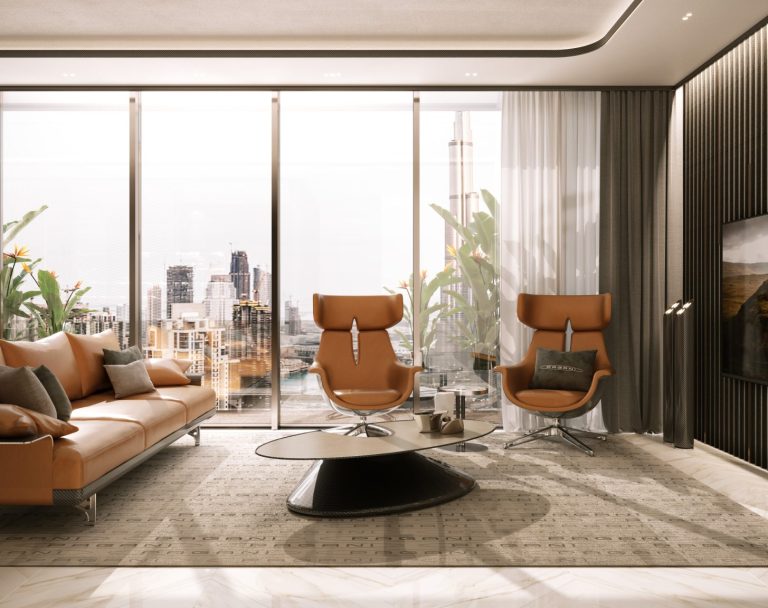The Zagreb real estate market is very dynamic; changes in the market greatly influence the prices of residential units. High prices, small supply, and high demand shape it today.
The article aims to analyze the trends in real estate prices in Zagreb over the past period and set up certain predictions for future trends until the end of 2024. We shall try to present as clear a picture as possible regarding what buyers and investors can expect in the given period by analyzing past data, the current market situation, and expert forecasts.
Past trends in real estate prices in Zagreb
In the past five years, real estate prices in Zagreb have shown continuous growth.
Source: Burza nekretnina
The Croatian Bureau of Statistics showed that the house price index had been strongly growing, especially from 2020. The index measures changes in prices for houses and apartments, thus showing most of the trends in the market movement and changes in the value of a house in residential property. It is among the key indicators used in analyzing the real estate market.
According to CBS reports, the prices of real estate increased by 11.9% in 2023 compared to the previous year, and the prices in the city of Zagreb by 11.7%. This growth is attributed to a combination of factors, including economic stability, increasing demand, and limited supply of new residential units.
Source: Državni zavod za statistiku
The general rise in prices can partly be explained by an increase in investment in real estate as a safe investment, particularly during a period of low interest rates and instability in other investment markets. Lastly, urbanization and migration to city centers can be linked to increasing demand for residential property in Zagreb.
Current state of the real estate market in Zagreb
Residential property prices in Croatia continued their upward trend in 2023, showing an increase of 21% in the average asking price per square meter for apartments, now standing at 3,223 euros. The average asking price per square meter for houses also rose by 40%, reaching 2,606 euros.
According to an analysis by Njuškalo, the average price per square meter for apartments in Zagreb was 2,987 euros, while houses averaged 1,795 euros. The most expensive apartments are found in the following districts of Zagreb:
- Trešnjevka-jug (3,392 euros)
- Gornji grad-Medveščak (3,252 euros)
- Trnje (3,248 euros)
- Donji grad (3,263 euros)
Regarding houses, the highest prices are in Gornji grad-Medveščak, with an average price of 3,000 euros per square meter, and Donji grad, where prices reach 2,924 euros per square meter.
Conversely, the most affordable real estate prices are found in Sesvete, with an average of 2,194 euros per square meter for apartments and 1,151 euros per square meter for houses. The lowest average price per square meter for houses, 1,137 euros, is located in Gornja Dubrava.
Factors influencing the real estate market
The real estate market is shaped by numerous factors that collectively create a complex interplay of supply and demand dynamics. Here, we explore key factors significantly impacting the real estate market of Zagreb.
Pandemic, earthquakes, inflation
The COVID-19 pandemic has changed buyer preferences, increasing demand for spacious properties with gardens. Earthquakes in 2020 also influenced demand for newly constructed properties designed to withstand seismic activity.
Inflation and rising construction material costs have further escalated construction expenses, consequently affecting final property prices. These events continue to impact the real estate market, influencing both supply and demand dynamics.
Property type, location, size, and condition
Property type (apartments, houses, commercial spaces), location (city center, outskirts), size, and condition (new construction, older buildings) are critical factors influencing property prices. Prime locations in Zagreb, such as the city center and elite districts like Pantovčak, command higher prices, whereas peripheral areas offer more affordable options.
Buyers are willing to pay premiums for new construction due to higher construction standards and improved energy efficiency. Well-maintained and modernized properties generally achieve better market prices, whereas older, poorly maintained properties may require renovations or sell at lower prices.
Urban and infrastructure development
Urban development initiatives, including infrastructure renovations, new road constructions, and beautification projects, significantly impact property markets.
Improvements in public transport accessibility, the opening of new schools, shopping centers, and other amenities enhance property values. These enhancements not only attract new residents but also elevate the overall quality of life in these areas, making them more attractive to potential buyers and investors.
Socio-economic factors
Socio-economic factors, such as demographic shifts, migration trends, and economic growth, have substantial influence on the real estate market.
Zagreb, as the capital city, attracts many young professionals seeking proximity to employment hubs, driving up demand for residential units near business districts. Population growth and influx of new residents further stimulate residential development. Economic prosperity boosts incomes and living standards, expanding the pool of potential real estate participants.
Impact of climate change and sustainability
Increasing sustainability and energy efficiency of buildings have huge impacts on the Zagreb real estate market. Buyers increasingly prioritize properties with minimal environmental impact and lower operational costs, favoring buildings with enhanced insulation, solar panels, and other green technologies.
These could quite easily become the norm for new builds, thus sending the price of new properties even higher.
Legal and regulatory changes
Legal and regulatory changes also play a significant role in the fluctuation of the real estate market. Introducing new laws or amending existing regulations related to construction, property ownership, and leasing can significantly impact market conditions. Buyers and investors must stay informed about these changes and adapt their strategies accordingly within the evolving legal framework.
Expert predictions: forecast until the end of 2024
The forecast is that real estate prices in Zagreb will continue to grow until the end of 2024, but at a slower pace than in previous periods. The prediction also indicates a stabilization in prices with possible minor adjustments. Key factors influencing price trends include macroeconomic conditions, ongoing infrastructure development, and the supply of new residential units.
A significant reason for anticipated price stabilization is the gradual increase in the supply of new properties. Despite the sluggish process of issuing building permits, improvements are expected in the coming years, potentially increasing supply and alleviating upward price pressures.
Experts indicate that price growth in the upcoming period will be more of an exception than the rule. Cycles usually alternate every seven to eight years, so this period might not be an exception. Specifically, the market started to rise in 2015 after a decline in 2008. We can expect the market to return to realistic frameworks in the coming period.Want more? Check our blog to get the latest information and updates from the real estate world.







